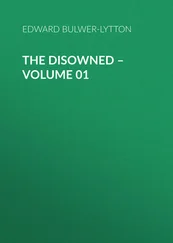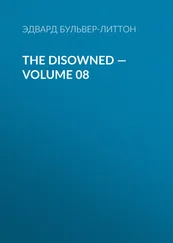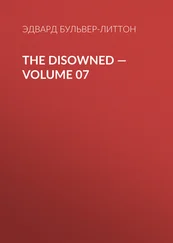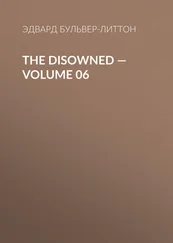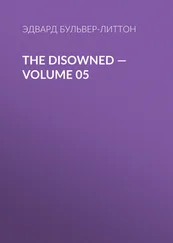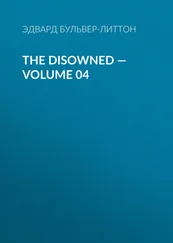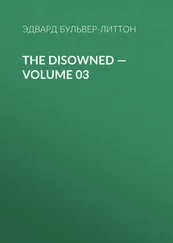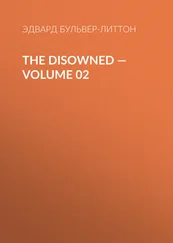Эдвард Бульвер-Литтон - The Disowned — Complete
Здесь есть возможность читать онлайн «Эдвард Бульвер-Литтон - The Disowned — Complete» — ознакомительный отрывок электронной книги совершенно бесплатно, а после прочтения отрывка купить полную версию. В некоторых случаях можно слушать аудио, скачать через торрент в формате fb2 и присутствует краткое содержание. Жанр: foreign_prose, literature_19, Европейская старинная литература, foreign_antique, на английском языке. Описание произведения, (предисловие) а так же отзывы посетителей доступны на портале библиотеки ЛибКат.
- Название:The Disowned — Complete
- Автор:
- Жанр:
- Год:неизвестен
- ISBN:нет данных
- Рейтинг книги:5 / 5. Голосов: 1
-
Избранное:Добавить в избранное
- Отзывы:
-
Ваша оценка:
- 100
- 1
- 2
- 3
- 4
- 5
The Disowned — Complete: краткое содержание, описание и аннотация
Предлагаем к чтению аннотацию, описание, краткое содержание или предисловие (зависит от того, что написал сам автор книги «The Disowned — Complete»). Если вы не нашли необходимую информацию о книге — напишите в комментариях, мы постараемся отыскать её.
The Disowned — Complete — читать онлайн ознакомительный отрывок
Ниже представлен текст книги, разбитый по страницам. Система сохранения места последней прочитанной страницы, позволяет с удобством читать онлайн бесплатно книгу «The Disowned — Complete», без необходимости каждый раз заново искать на чём Вы остановились. Поставьте закладку, и сможете в любой момент перейти на страницу, на которой закончили чтение.
Интервал:
Закладка:
At that moment one of those unfortunate women who earn their polluted sustenance by becoming the hypocrites of passions abruptly accosted them.
“Miserable wretch!” said Warner, loathingly, as he pushed her aside; but Clarence, with a kindlier feeling, noticed that her haggard cheek was wet with tears, and that her frame, weak and trembling, could scarcely support itself; he, therefore, with that promptitude of charity which gives ere it discriminates put some pecuniary assistance in her hand and joined his comrade.
“You would not have spoken so tauntingly to the poor girl had you remarked her distress,” said Clarence.
“And why,” said Warner, mournfully, “why be so cruel as to prolong, even for a few hours, an existence which mercy would only seek to bring nearer to the tomb? That unfortunate is but one of the herd, one of the victims to pleasures which debase by their progress and ruin by their end. Yet perhaps she is not worse than the usual followers of love,—of love, that passion the most worshipped, yet the least divine,—selfish and exacting,—drawing its aliment from destruction, and its very nature from tears.”
“Nay,” said Clarence, “you confound the two loves, the Eros and the Anteros; gods whom my good tutor was wont so sedulously to distinguish: you surely do not inveigh thus against all love?”
“I cry you mercy,” said Warner, with something of sarcasm in his pensiveness of tone. “We must not dispute; so I will hold my peace: but make love all you will; what are the false smiles of a lip which a few years can blight as an autumn leaf? what the homage of a heart as feeble and mortal as your own? Why, I, with a few strokes of a little hair and an idle mixture of worthless colours, will create a beauty in whose mouth there shall be no hollowness, in whose lip there shall be no fading; there, in your admiration, you shall have no need of flattery and no fear of falsehood; you shall not be stung with jealousy nor maddened with treachery; nor watch with a breaking heart over the waning bloom, and departing health, till the grave open, and your perishable paradise is not. No: the mimic work is mightier than the original, for it outlasts it; your love cannot wither it, or your desertion destroy; your very death, as the being who called it into life, only stamps it with a holier value.”
“And so then,” said Clarence, “you would seriously relinquish, for the mute copy of the mere features, those affections which no painting can express?”
“Ay,” said the painter, with an energy unusual to his quiet manner, and slightly wandering in his answer from Clarence’s remark, “ay, one serves not two mistresses: mine is the glory of my art. Oh! what are the cold shapes of this tame earth, where the footsteps of the gods have vanished, and left no trace, the blemished forms, the debased brows, and the jarring features, to the glorious and gorgeous images which I can conjure up at my will? Away with human beauties, to him whose nights are haunted with the forms of angels and wanderers from the stars, the spirits of all things lovely and exalted in the universe: the universe as it was; when to fountain, and stream, and hill, and to every tree which the summer clothed, was allotted the vigil of a Nymph! when through glade, and by waterfall, at glossy noontide, or under the silver stars, the forms of Godhead and Spirit were seen to walk; when the sculptor modelled his mighty work from the beauty and strength of Heaven, and the poet lay in the shade to dream of the Naiad and the Faun, and the Olympian dwellers whom he walked in rapture to behold; and the painter, not as now, shaping from shadow and in solitude the dim glories of his heart, caught at once his inspiration from the glow of earth and its living wanderers, and, lo, the canvas breathed! Oh! what are the dull realities and the abortive offspring of this altered and humbled world—the world of meaner and dwarfish men—to him whose realms are peopled with visions like these?”
And the artist, whose ardour, long excited and pent within, had at last thus audibly, and to Clarence’s astonishment, burst forth, paused, as if to recall himself from his wandering enthusiasm. Such moments of excitement were indeed rare with him, except when utterly alone, and even then, were almost invariably followed by that depression of spirit by which all over-wrought susceptibility is succeeded. A change came over his face, like that of a cloud when the sunbeam which gilded leaves it; and, with a slight sigh and a subdued tone, he resumed,—
“So, my friend, you see what our art can do even for the humblest professor, when I, a poor, friendless, patronless artist, can thus indulge myself by forgetting the present. But I have not yet explained to you the attitude of my principal figure;” and Warner proceeded once more to detail the particulars of his intended picture. It must be confessed that he had chosen a fine though an arduous subject: it was the Trial of Charles the First; and as the painter, with the enthusiasm of his profession and the eloquence peculiar to himself, dwelt upon the various expressions of the various forms which that extraordinary judgment-court afforded, no wonder that Clarence forgot, with the artist himself, the disadvantages Warner had to encounter in the inexperience of an unregulated taste and an imperfect professional education.
CHAPTER XIV
All manners take a tincture from our own,
Or come discoloured through our passions shown.
What! give up liberty, property, and, as the Gazeteer says, lie down to be saddled with wooden shoes?—Vicar of Wakefield.
There was something in the melancholy and reflective character of Warner resembling that of Mordaunt; had they lived in these days perhaps both the artist and the philosopher had been poets. But (with regard to the latter) at that time poetry was not the customary vent for deep thought or passionate feeling. Gray, it is true, though unjustly condemned as artificial and meretricious in his style, had infused into the scanty works which he has bequeathed to immortality a pathos and a richness foreign to the literature of the age; and, subsequently, Goldsmith, in the affecting yet somewhat enervate simplicity of his verse, had obtained for Poetry a brief respite from a school at once declamatory and powerless, and led her forth for a “Sunshine Holiday” into the village green and under the hawthorn shade. But, though the softer and meeker feelings had struggled into a partial and occasional vent, those which partook more of passion and of thought, the deep, the wild, the fervid, were still without “the music of a voice.” For the after century it was reserved to restore what we may be permitted to call the spirit of our national literature; to forsake the clinquant of the French mimickers of classic gold; to exchange a thrice-adulterated Hippocrene for the pure well of Shakspeare and of Nature; to clothe philosophy in the gorgeous and solemn majesty of appropriate music; and to invest passion with a language as burning as its thought and rapid as its impulse. At that time reflection found its natural channel in metaphysical inquiry or political speculation; both valuable, perhaps, but neither profound. It was a bold, and a free, and an inquisitive age, but not one in which thought ran over its set and stationary banks, and watered even the common flowers of verse: not one in which Lucretius could have embodied the dreams of Epicurus; Shakspeare lavished the mines of a superhuman wisdom upon his fairy palaces and enchanted isles; or the Beautifier [Wordsworth] of this common earth have called forth
“The motion of the spirit that impels
All thinking things, all objects of all thought;”
Интервал:
Закладка:
Похожие книги на «The Disowned — Complete»
Представляем Вашему вниманию похожие книги на «The Disowned — Complete» списком для выбора. Мы отобрали схожую по названию и смыслу литературу в надежде предоставить читателям больше вариантов отыскать новые, интересные, ещё непрочитанные произведения.
Обсуждение, отзывы о книге «The Disowned — Complete» и просто собственные мнения читателей. Оставьте ваши комментарии, напишите, что Вы думаете о произведении, его смысле или главных героях. Укажите что конкретно понравилось, а что нет, и почему Вы так считаете.

